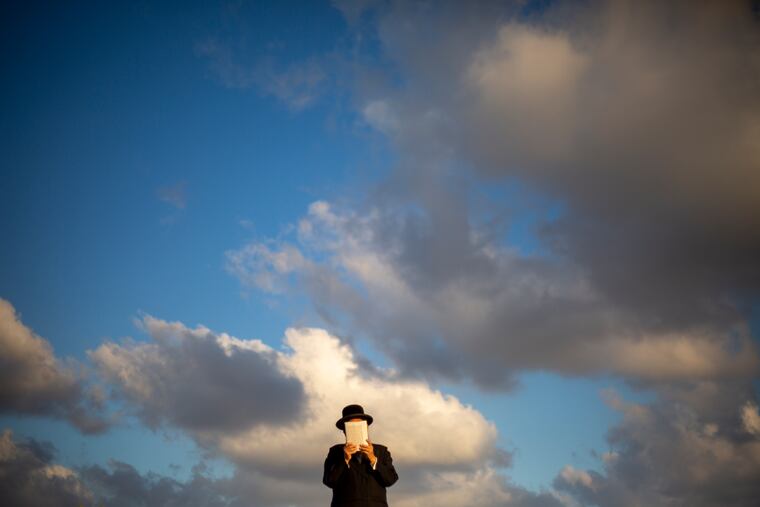My Yom Kippur experience in Germany ‘broke my heart open’
I wasn't planning to observe Yom Kippur as a college student abroad. That changed when I got to Munich.

The sun streamed through the flimsy window shade in our Munich hostel room, waking me. I grabbed for my water bottle, dehydrated from the night before. My best friend slept soundly in the bunk above me; the room was filled with other friends from our semester abroad in the Netherlands. It was 1990, and we were theater students taking classes four days a week, riding bicycles around southern Holland’s small towns, backpacking on long weekends. By this early October weekend, we had mastered the train schedule and how to order weed in local hash bars.
We traveled in groups for safety and fun, sleeping on night trains. Everyone had decided on Munich for Oktoberfest, and I went along. My parents had reached me on the shared dormitory phone the night before we left for Germany. “You’ll be there on Yom Kippur,” my mother reminded me.
They knew that I wasn’t planning to observe the holidays while I was abroad. I could barely tolerate High Holiday services when I was in high school in Central Pennsylvania. I had been a kid who loved Hebrew school, but as I got closer to college, I felt the call to separate from the traditions of my childhood. My ideas of God were becoming more Earth-based and expansive than “The Lord” we prayed to in our Reform siddur.
But that morning in our hostel room, I woke with a hunger for synagogue so deep inside my bones that nothing else mattered.
I woke with a hunger for synagogue so deep inside my bones that nothing else mattered.
I tore a page out of my journal and wrote a friend a note: Going to find a synagogue. Will meet you guys later at the train station.
I stepped outside into the crisp morning air. I didn’t speak German and had no map of Munich.
I hailed a cab and told the driver in English, Take me to a synagogue, please. He understood me enough and drove off. Within minutes, we arrived at a shul.
Armed guards stood at its gate. In English, I told them that I wanted to go in for services. They frisked me and looked inside my bag. I belong inside, I wanted to say.
» READ MORE: Why I’m observing Yom Kippur this year as a workers’ rights holiday | Opinion
They let me go in. In the vestibule, I realized how out of place I was: a 19-year-old American student in leggings and a jean jacket, knapsack in tow. It was an Orthodox shul, and men were dressed in suits, draped in their tallisim. I was ushered up the steps to the women’s section and handed a mahzor. I found a seat toward the back. Some of the women turned to stare at me; a few smiled.
Opening that book to see Hebrew letters, my stomach dropped down, as if I were on a roller coaster. I gasped audibly, and an older woman next to me reached out and put her hand on mine. Then the music I recognized: the Avinu Malkeinu. That chazzan, singing with the weight that the gates of life will soon be closing, broke my heart open.
The night before with my friends, as we walked through Oktoberfest, I didn’t tell them that the men banging on the tables, the loud singing, scared me. Everyone was having fun. I took a seat with them, ate a pretzel, drank my beer.
Now I felt everything: how I missed my parents and my grandmothers, missed walking into our small temple, where I felt at home.
I am here in Munich, on a Yom Kippur morning, I thought. The country that my grandfather fled from, when he was exactly my age, going to England, then Cuba, and finally settling in Easton, Pa. But Germany was his home, one that he could never return to.
I sat with that truth. I prayed with the women and cried.
Gabrielle Kaplan-Mayer is a writer and educator based in Philadelphia.